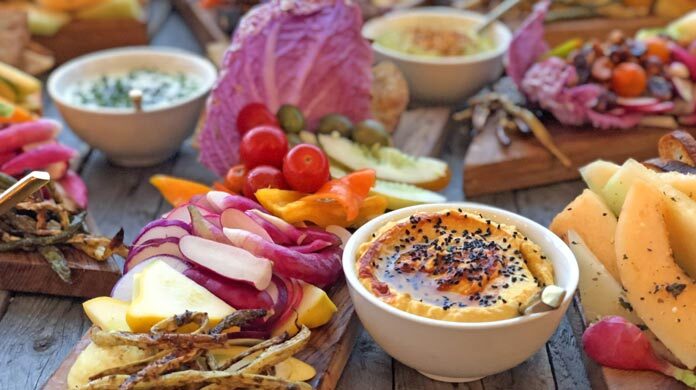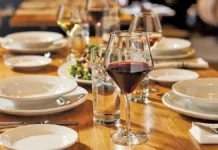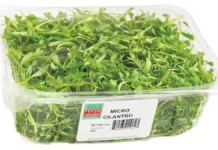
The farm to table movement began with the Slow Food Organization in Italy and was pioneered in the states by Alice Waters. Slow Food stands for a commitment to protect the community, culture and environment through food.
As the US became more environmentally conscious, the boom of “Farm to Table” took off with a focus on quality, localism, and sustainability. These traits are not only continuing to grow in popularity, but will have positive impact on menus, chefs, local economies, and restaurant-goers for generations to come.
For over 100 years the Wainer family has been dedicated to local sustainable agriculture – it is deeply rooted in all we do. Teaching, supporting, and partnering with local farms across the Northeast to bring the freshest, local and quality produce to restaurants is our passion. On our own coastal family farm, we experiment with a variety of heirloom crops, micro greens, seeding techniques, and crop rotation methods using organic growing practices. We determine what crops are best fit to be planted in New England soil and deliver high yields. We then share this information with our partner farm network so that our partners can grow the crops locally that our customers demand, further strengthening the local agriculture community and volume purchases from local farms.
We have always been a major proponent of farm to table since our inception in 1914. My great-grandfather would source product from neighboring farms to distribute to the local community. We began growing on in our own inner city greenhouse and on the Wainer Family Farm in the early 2000s. My father, Henry Wainer, created the Jansal Valley line of specialty foods and ingredients with my mother Marion while traveling the globe in search of food artisans who are masters of their craft. Over the years our artisan network has grown locally and worldwide and we continue to provide chefs with the high quality specialty foods and ingredients they demand. As my father says: “Jansal Valley will not be found on any map. It is a place deep in our hearts, named for our children: Jamie, Andrew, Sara & Allie. If it comes from Jansal Valley, it comes with a promise of quality that honors their names.”
The needs of local farmers are always changing – needs are dependent on environmental factors as well as logistical, labor related, and revenue factors.
One thing I do notice is the need for farmers to continue to practice agricultural diversification. For example, an apple farm may not just grow apples, but may consider creating their own line of cider or hard cider. A potato farm may consider being a premier regional supplier for a local vodka brand and not just stay within conventional food-centric distribution channels. These new ventures for farmers attract the next generation of farming which has been challenging in recent years.
 Our relationships with farms is a solid one, built on synergy and collaboration including: education relating to crop, quality, and yield and strict food safety protocols & long-lasting trusting partnerships. Most importantly, we look for a caring and understanding partnership aware of each other’s needs, challenges, and opportunities.
Our relationships with farms is a solid one, built on synergy and collaboration including: education relating to crop, quality, and yield and strict food safety protocols & long-lasting trusting partnerships. Most importantly, we look for a caring and understanding partnership aware of each other’s needs, challenges, and opportunities.
To accomplish that goal, we work closely with a number of government and local/State agriculture organizations including: Massachusetts Department of Agricultural Resources, North East Organic Farming Association, National Sustainable Agricultural Coalition and Farm to Institution New England.
As Farm to Table has grown, it has spawned a number of ancillary movements. Most recently, “Clean Eating” has emerged. Clean eating can mean a lot nowadays and in the simplest form, it means to eat product in its natural, unprocessed state. For produce specifically, it can relate to the crop being non-GMO, organically grown, and sustainably grown. When it comes to specialty foods, more specifically clean foods are foods without the use of artificial ingredients, such as artificial preservatives, flavors and colors.
Organic produce continues to experience explosive growth year over year. People want to enjoy food that is not chemically treated or grown with the use of genetically modified organisms. The abundance of information available at our fingertips today is driving food consumption education and increasing the demand for fresh, clean, quality foods and produce.
Our goal is to guide a new generation of chefs upon us to navigate a major cultural change happening stemming from access to information. Millennial chefs are more informed and environmentally conscious than before thanks to the information that is readily available at their fingertips. Chefs want to know where their food is coming from and how to support their local communities through localism. The small steps chefs have taken as advocates for local product will improve sustainability for future generations to come.
We also welcome the opportunity to support that next generation of chefs to assist them in promoting “local to table” menus. When it comes to promoting local, it needs to be visual. Chefs use their menus and social media to provide their clientele with an education of the steps they take to support local farms and producers. Simply calling out the name of the producer on a menu or sharing the story of the farm through social channels are easy way to promote “local to table.” Bringing in the producers or farms for special dinners is another way to educate consumers about the importance of supporting local.
We are also seeing chefs and farmers working together to build sustainable solutions. They are collaborating to find ways to utilize parts of crops that might typically be left in the field. We call them byproducts. Chefs are also working with seed breeders to create plant varieties that make an impact in the soil and at the table.
It’s interesting to to watch the respect that these relationships between farmer and chef generate. It’s all about supporting the farmers through fair compensation for their product and ease of distribution to the market. By creating strong partnerships with farms that we trust, we are able to supply our customers with the safest, freshest produce available. Integrated into all of this is a strong, passionate support network within Sid Wainer & Son. Our procurement, logistics, food safety, and industry leading customer service teams do their best to assure that the needs of our farm partners and customers are met.
From a profit and loss standpoint technology is also moving forward to support these new collaborations. Responsible growing within a controlled environment such as hydroponic farming allows chefs to have access to ingredients year-round as the product is not fully reliant on weather. Instead of sourcing from farms far across the country that have favorable year-round climates, the indoor growing approach allows for produce orders to stay local to the Northeast further enhancing agricultural sustainability and stability.
We are a company of chefs and a team built on our passion for food and agriculture. Our sales team understands the precise needs of our customers, they are always on the cutting edge of specialty foods and produce. Our team of chefs are willing to go the extra mile to impact someone’s menu goals or bring a chefs vision to life. If that vision is an impactful farm to table menu, our sales team will make that possible for you.
Sid Wainer & Son works with farms and restaurants to add creative spins on local throughout their operations every day. If you are looking to establish a farm to table program beyond your daily menu and have it impact other areas complimentary to dinning such as bar service, please contact our team at SidWainer.Com or call us at 800.423.8333.























